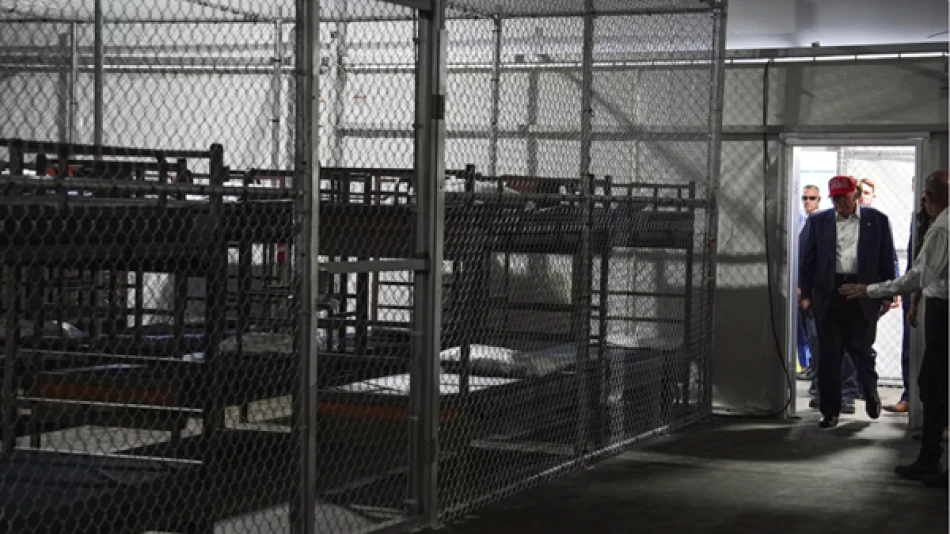
US Court Orders Dismantling of Immigrant Detention Center
Federal Judge Forces Closure of Florida's "Alligator Alcatraz" Immigration Detention Center
A federal judge has ordered the effective shutdown of Florida's hastily constructed "Alligator Alcatraz" immigration detention facility, dealing a significant blow to the Trump administration's mass deportation strategy. The ruling highlights the legal vulnerabilities of rapid-deployment immigration enforcement infrastructure and signals that environmental law could become an unexpected battleground in America's immigration debate.
Environmental Law Trumps Immigration Enforcement
U.S. District Judge Kathleen Williams issued a sweeping order Thursday prohibiting both the federal government and Florida state authorities from transferring new migrants to the controversial detention center built in the Everglades. More critically, she mandated the dismantling of most facility infrastructure within 60 days, including temporary fencing, lighting networks, generators, and waste treatment systems.
The decision stems from a lawsuit filed by Friends of the Everglades and the Center for Biological Diversity, who argued that the facility threatens the fragile Everglades ecosystem and was constructed without required environmental impact studies.
From Construction to Controversy in Record Time
The detention center's brief existence epitomizes the tensions between rapid policy implementation and regulatory compliance. Built in just eight days last June at an abandoned airport in Florida's wetlands, the facility featured double-bunked beds, wire cages, and large white tents designed to house up to 3,000 migrants according to Homeland Security Secretary Kristi Noem.
President Trump, who has pledged to deport millions of undocumented immigrants, visited the facility last month and personally endorsed the "Alligator Alcatraz" nickname—a reference to the infamous San Francisco Bay prison he has expressed interest in reopening.
Legal Strategy Meets Political Reality
The ruling represents a strategic victory for immigration advocates who have increasingly turned to environmental law as a tool to challenge detention facilities. By focusing on procedural violations of environmental statutes rather than immigration policy directly, opponents found a more legally defensible position that even conservative courts struggle to dismiss.
Florida's Republican Governor Ron DeSantis has already announced plans to appeal the decision, setting up a potential Supreme Court showdown over the balance between federal immigration enforcement and environmental protection laws.
Broader Implications for Immigration Infrastructure
This closure could signal trouble for similar rapid-deployment detention facilities planned across the country. The Trump administration's promise to dramatically expand immigration enforcement relies heavily on quickly establishing temporary detention capacity, but the Florida ruling suggests that environmental regulations may significantly constrain these efforts.
The decision also raises questions about the long-term viability of using emergency powers to bypass normal regulatory processes. While immigration enforcement enjoys broad executive authority, the intersection with environmental law creates complex legal terrain where presidential powers face established judicial precedent.
What This Means Going Forward
The "Alligator Alcatraz" shutdown demonstrates how existing regulatory frameworks can effectively constrain even high-priority political initiatives. For immigration advocates, it provides a roadmap for challenging future detention facilities through environmental law rather than more politically fraught immigration litigation.
For the Trump administration, the ruling underscores the importance of following established regulatory processes, even when pursuing urgent policy goals. The 60-day dismantling timeline also creates immediate logistical challenges for housing the facility's current detainees and processing future arrivals in South Florida.
The case ultimately reflects a broader reality: in America's complex legal system, even the most determined policy initiatives must navigate multiple layers of existing law—and environmental protection remains one of the most robust.
Most Viewed News

 Layla Al Mansoori
Layla Al Mansoori






